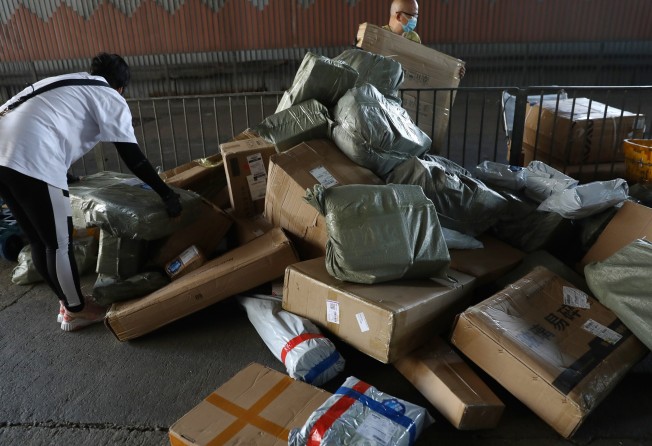E-commerce schemes involving empty boxes, QR codes and fake tracking numbers are linked to gambling and money laundering in China
- Police uncovered 2,700 websites involved in empty package schemes that are used for money laundering
- Mysterious empty packages have long been used in so-called brushing scams to boost e-commerce sellers’ ratings

E-commerce is giving money laundering a modern makeover. Empty packages from China showing up on doorsteps are often linked to unscrupulous online sellers trying to boost sales numbers in what’s called a brushing scheme. But investigators in China say these mysterious packages are also being used for more nefarious purposes.
Police in the city of Wuxi, northwest of Shanghai, recently busted an operation that used a so-called empty package scheme to launder illegal cross-border gambling money, state-run news agency Xinhua reported on Thursday.
Print option is available for subscribers only.
SUBSCRIBE NOW